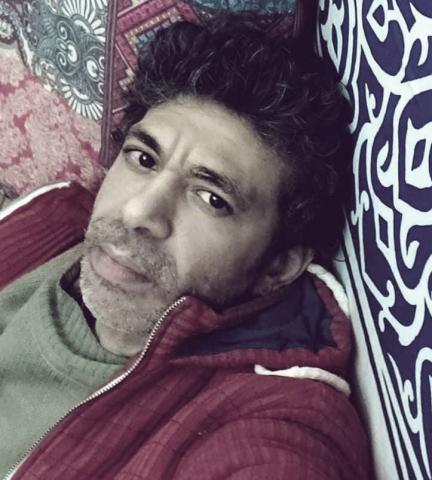Longlist Interview with Tarek Imam
21/03/2022

When did you start writing Cairo Maquette and where did the inspiration for it come from?
Cairo Maquette was with me for a long time, even since the first seed of the idea was sown more than ten years ago, in the aftermath of the 25th January 2011 Revolution. That moment inspired me to begin work on a novel about the fluctuating relationship between the artist, the city and the authorities, not just the political ones, but the artistic ones too; and to reconsider the role of the artist and art; even to make art itself a question for art.
The events of the novel were changing from day to day, since the outside reality was changing the fictional one and feeding into it during the writing process. These new events kept on developing the novel and making it difficult to finish, every time I thought I had nearly completed it. In fact, other books by me were published, while I kept on working on Cairo Maquette, a book that wouldn’t finish. Perhaps the problematic thing about the January Revolution is that it was, on the one hand, a historic moment, but on the other hand, it hasn’t yet entered history. Everything which came after has changed it and renewed it as a present reality. This is what makes it hard to complete a text, when I feel that reality itself refuses to draw a conclusive line under itself. This made me question time itself within the novel. So for me, this novel is the dream I hoped for, with more doubts about it coming into being than I had certainty. Even when I received the first printed copy, I couldn’t believe that it had really become a book!
Did the novel take long to write and where were you when you completed it?
I wrote the novel in Cairo. As mentioned, I kept writing and stopping, then returning to the project, between hope and despair. However, the final writing of the novel took a whole year of continuous writing in 2020, which became the fictional present in the novel. The funny thing is that for years I made each new year the fictional present (the novel includes two other time periods: 2011 and 2045), then I’d change the year in the next draft when a new year started, in order to engage with aspects of the present moment. For this reason, Covid-19 appeared in the background of the novel, despite the fact that it had not been there in previous versions, since it hadn’t existed then! I was also following rapidly unfolding developments, such as “the new capital”. Even though this idea was old and had always been around - and it was in the novel from the beginning - yet in that particular year it became a living reality, giving me more to play with in my writing treatment.
How have readers and critics received the novel?
The reception has been truly astonishing as far as I’m concerned, to the extent that I have said in more than one meeting that it was “shocking”. The novel has achieved huge critical success, and numerous Egyptian and Arab studies, articles and reviews have interpreted it. But the exciting thing is that it has been very commercially successful too. Since being published, it has been on the bestseller lists in bookshops and book fairs. This has made me very happy because I see the novel as multi-layered. Although I certainly hoped for it to be successful among readers, I honestly did not imagine it would be to this extent.
What is your next literary project after this novel?
I am working on a project about the Alexandrian-Italian poet Giuseppe Ungaretti. It’s a historical novel which looks at the relationship of the individual who has a fluctuating identity with a city which has an unfixed identity, at a particular historic moment, when Alexandria was throwing off her cosmopolitan dress and clothing herself with a new identity. This project is a dream of mine and is a follow-on from a previous novel, The Second Life of Constantine Kafafis (2012). It’s not part two of that novel. But it questions in a deeper way the relationship of the individual/poet, who was half-Egyptian and half-foreigner, with the place, how this affected the poetic act and raises the existential question of an expatriate in a city of expatriates.
